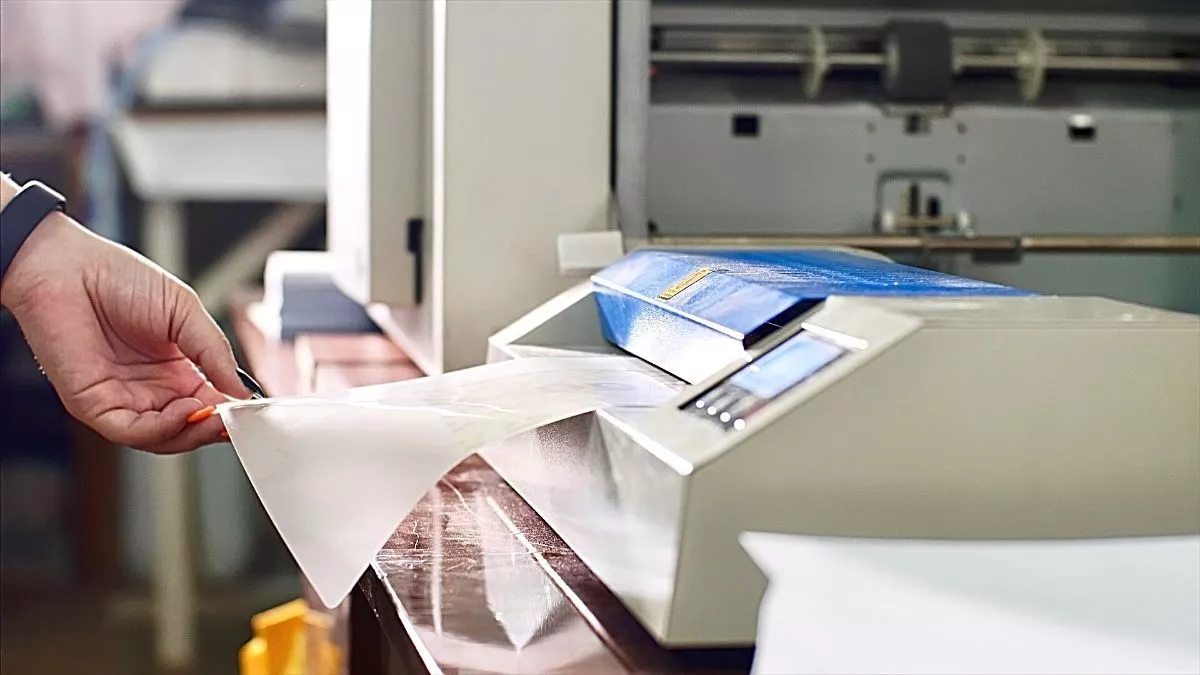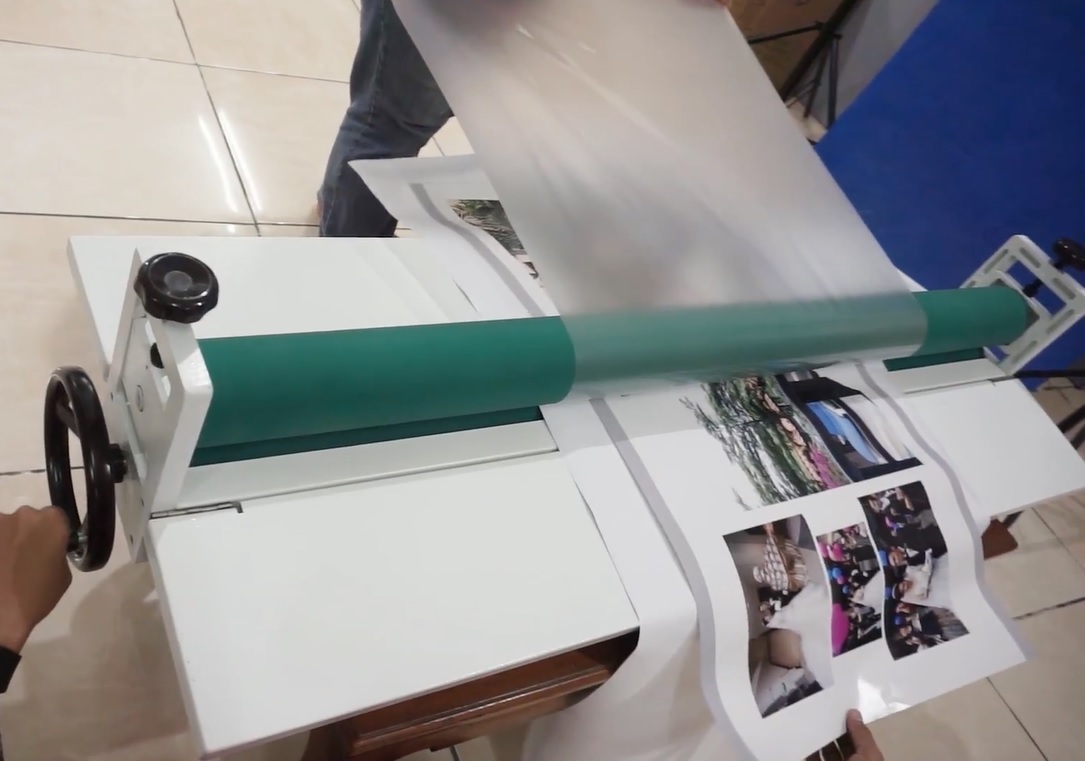Lamination is the finishing that uses transparent plastic. It is the popular method to protect printed paper or paper in general from water and dust. There is 5 mil vs 10 mil lamination which is generally used after printing. Check the difference and benefits here.
What is Lamination?

Lamination is the process where the plastic film that is similar to plastic will bond with a printed sheet. The lamination process uses heat to bond both materials, so the strength and durability are excellent. This method is reliable to protect any kind of sheet.
It is important to note that not all laminations are the same. They have different thicknesses and affect the quality. For example, 5 mil vs 10 mil lamination that usually people choose, has different covers and resistance to cover the sheets. The strength is also different.
However, the lamination process should consult with a professional. Some sheets might have different needs according to the thickness of the sheet itself. At the same time, lamination prices are also different according to the thickness of the plastic film.
The Quality of 5 Mil VS 10 Mil Lamination
The 5 Mil Lamination
This thickness is the average of laminating and many people choose this plastic film. The sturdiness level is moderate. The flexibility is supportive to fold the sheet. However, this thickness may be open after more than a decade. Usually, this plastic film is useful for charts and menus in restaurants.
The price of 5 mil lamination is also average. In the market, it's neither too cheap nor too expensive. It doesn't need too much heat to bond the plastic film with the seat. So, if you compare 5 mil vs 10 mil lamination, this plastic film is reliable. It is not as thick as 10 mil, but reliable for ordinary printed sheets.
The 10 Mil Lamination
If you are looking for a plastic film that offers high rigidity, then the 10 mil plastic film is the best option to choose. This plastic film offers the highest protection among all the sizes. However, you might find this plastic film is not easy to bend because the rigidity is very high.
The 10 mil lamination is popular to protect important documents. Since the plastic density is very high, it is reliable to resist water so the sheets won't get wet easily. The popular use of this 10 mil lamination is ID cards, tags, menus, and some reference sheets. It needs higher heat to bond with the paper.
The Importance of 5 Mil VS 10 Mil Lamination

1. The vibrancy
Some sheets do not have vibrancy and lamination will help them to look more vibrant. The color of the sheet will be glossy because of the plastic film. The film bonds with the sheets, so it doesn't look separated. For important documents, use the 10 mil lamination to look more professional.
2. Protecting from moisture
As we know, lamination will protect the sheets from moisture. We cannot avoid that moisture is dangerous to the sheets, especially the printed ones. The moisture will decrease the quality of the sheet and the written information. With lamination, it increases the protection for the long term.
3. Protecting from stains
The sheets can get stains from the environment and will ruin the quality. For some important documents, the stain will remove some information. It may affect the look of professionalism of the documents too. The 5 mil vs 10 mil lamination will protect the sheets from this risk.
4. Increasing the durability
The importance of using lamination for the printed sheet is increasing durability. The sheets might tear after years, but the lamination will prevent it from that risk. So, if you are going to make your document safe and durable, lamination is the best option to use as protection.
The Features of Lamination
1. Transparent
The color of the plastic film for lamination is transparent. It doesn't cover the sheet, so the sheet will still be able to read. Sometimes, the transparency will be different because of the quality of the plastic film. Nowadays, some plastic film is pink, yellow, or blue even though it is still transparent to look more attractive for many purposes.
2. Thin line
The maximum size of the lamination is only 10 ml. Meanwhile, at the market, the 5 mil VS 10 mil lamination is still the most popular option that you can choose for the sheets. The thin line makes the sheet flexible even though the level of rigidity is different. It is an affordable plastic film among all films.
3. Easy to bond
The plastic film will bond with the sheets. It is the method to cover the sheet perfectly and prevent it from any damage. With the help of heat, the plastic film will be well with the sheet. The margin of the laminate film will bond to each other, so there is no room for moisture.
4. It has many types
Another feature of 5 mil vs 10 mil lamination is the type of lamination. There are many types according to the thickness and also rigidity. The thicker the plastic film, the more rigid the result. It saves your money by laminating the sheets and you can choose per requirement.
The Benefits of Lamination
1. Cheap cover
The lamination is the best and cheapest cover for printed sheets. Plastic film is available anywhere and many printing companies offer laminating in their service list. Until now, lamination is still the best protection for all kinds of paper.
2. Increasing professionalism
The benefit you can get from lamination is you can increase the professional impression of the sheet you have. Since professionalism is important, protecting the sheets from dirt and moisture can be done by laminating the sheet.
Both 5 mil vs 10 mil lamination has their roles protecting the printed sheets. Until now, the laminating sheet is still the best choice to protect the paper well. Check the kind of your document before printing and adjust the thickness to protect it best.

I'm Morgan, the creator of VPNForMe — a site born from too many hours spent side-eyeing sketchy VPN reviews and buffering videos.
I wanted a place where people could get straight answers about privacy, streaming access, and which VPNs actually deliver — without the hype or tech jargon.
